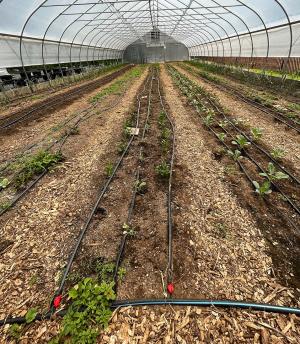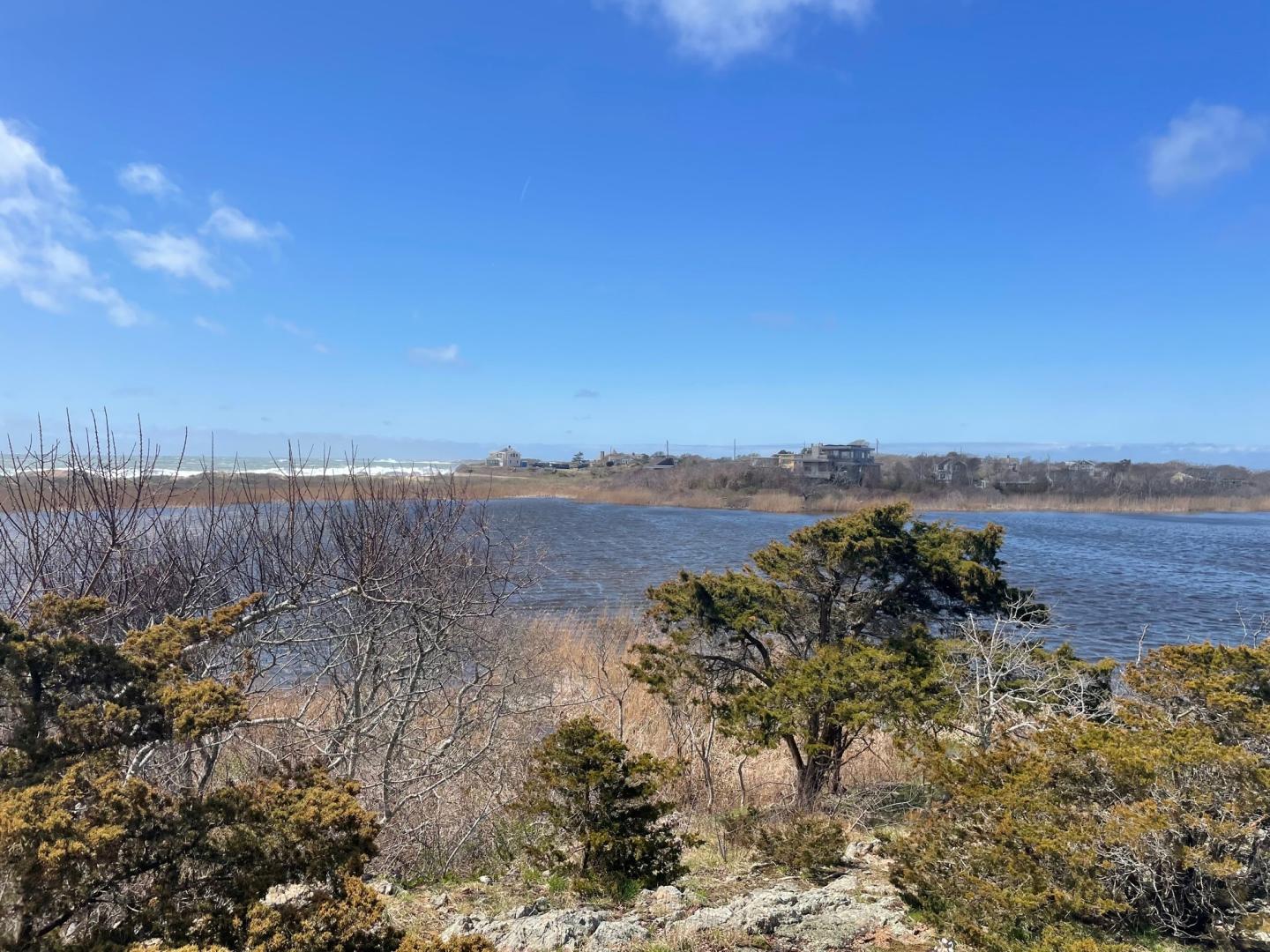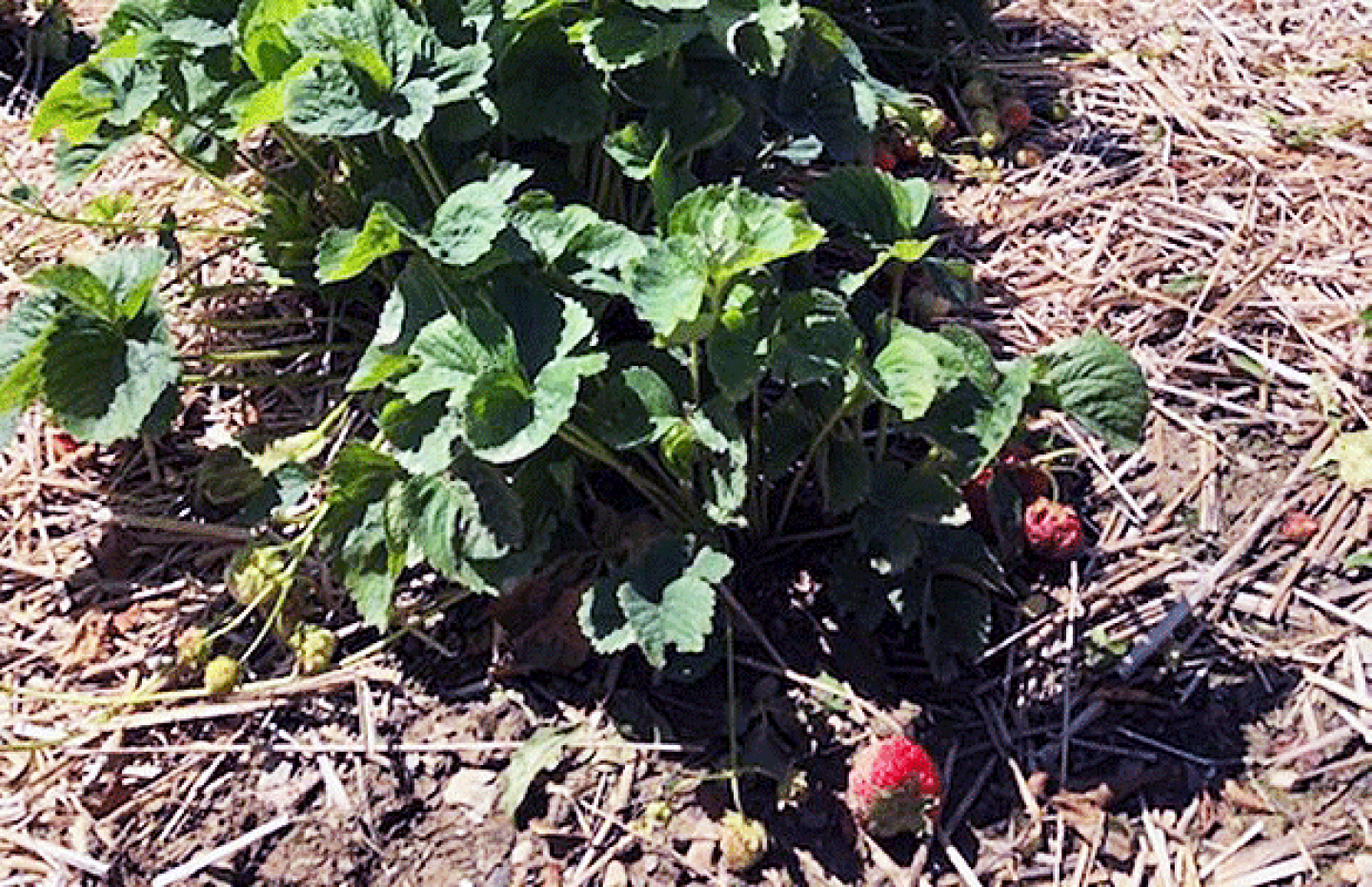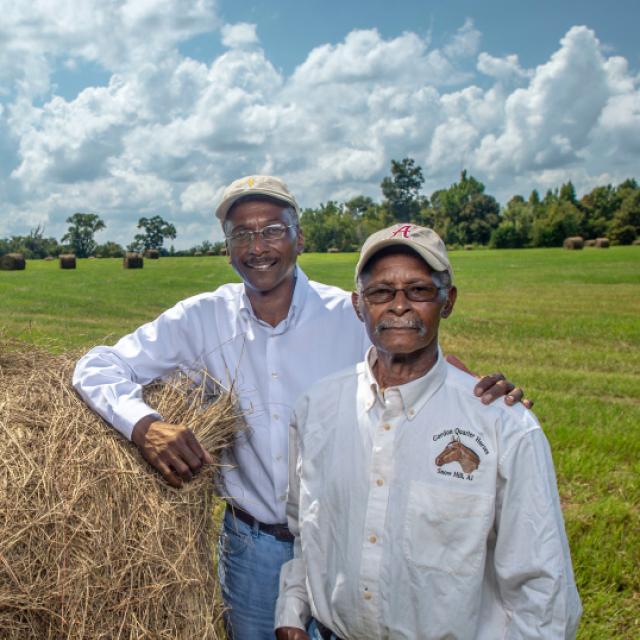EQIP CPAs, DIAs, and CEMAs
Learn about EQIP Conservation Planning Activities (CPAs), Design and Implementation Activities (DIAs), and Conservation Evaluation and Monitoring Activities (CEMAs).
The Environmental Quality Incentives Program (EQIP) provides financial and technical assistance to Rhode Island farmers, woodland owners, oyster growers, livestock producers, and urban growers to address natural resource concerns in the Ocean State.
NRCS works one-on-one with producers to develop a conservation plan that outlines conservation practices and activities to help solve on-farm resource issues. Producers implement practices and activities in their conservation plan that can lead to cleaner water and air, healthier soil and better wildlife habitat, all while improving their agricultural operations. EQIP helps producers make conservation work for them. Financial assistance for practices may be available through EQIP. Some producers may also qualify for advance payment.
Some of these benefits include:
Watch how farmers and ranchers across the country are implementing EQIP practices and other conservation activities in our Conservation at Work video series. For example, see how producers are using the nutrient management conservation practice to improve water quality by more effectively using nutrients.
Targeted EQIP financial assistance is available through several conservation initiatives. See which initiative is available in your state.
EQIP offers grant opportunities through Conservation Innovation Grants, which awards competitive grants that stimulate the development and adoption of innovative approaches and technologies for conservation on agricultural lands.
NRCS offers technical assistance at no cost. Producers can use our personalized advice and information, based on the latest science and research, to make informed decisions about their land.
Technical Service Providers (TSP) can help producers plan, design and implement conservation practices or develop conservation activity plans to improve their agricultural operations. For more information on the Technical Service Provider program, visit the TSP page.
Technical assistance is also offered through our Conservation Technical Assistance (CTA) program.
Need a local Technical Service Provider? Visit the locate a TSP page.
The first step is to contact your local NRCS office. An NRCS conservation planner will schedule a visit to your property. They will walk the land with you to discuss your goals and review any resource concerns. Following the site visit, the conservation planner will develop a conservation plan that includes a variety of conservation practices or activities to address the resource concerns and management goals discussed.
Applications for NRCS conservation programs are accepted on a continuous basis; however, customers should apply by state-specific ranking dates to be considered for the current funding cycle.
To learn more about EQIP, contact your local NRCS office.
NRCS program data are housed on the Resource Conservation Assessment Data Viewer. EQIP data for FY2009 to the present are available on the EQIP data page. Fiscal year 2014 - 2021 financial assistance data related to EQIP and other NRCS programs are available on farmers.gov.
When you apply for EQIP, your application may be selected for funding based on the predominant land use and type of conservation project being proposed. Applications will be ranked based on how well they address national, state, and local priorities.
The Environmental Quality Incentives Program (EQIP) provides financial and technical assistance to farmers to address natural resource concerns and deliver environmental benefits like improved water and air quality, conserved ground and surface water, increased soil health, reduced soil erosion and sedimentation, and improved or created wildlife habitat. Funding pools will be broken up by district (location) as follows: Northern (Providence County), Eastern (Bristol & Newport counties) and Southern (Washington & Kent counties). Each district will have a unique set of programmatic ranking questions based on the local working group’s goals and feedback that was received in that county.
For fiscal year 2026, Rhode Island is prioritizing funding to help farmers and forest landowners improve their operations' resiliency and productivity. In additional to our general state-wide opportunities, we have funding under the National Water Quality Initiative (NWQI) to implement practices targeted in the Sakonnet River, Scituate Reservoir Watersheds, and Tomaquag Brook-Pawcatuck River watersheds to address water quality resource concerns identified by state and federal partners.

Funding opportunities in fiscal year 2026 will include:
More funding opportunities may become available in FY 2026.
The FY 2026 ranking questions and criteria for EQIP in Rhode Island will be published on this site at the earliest date possible.
NRCS is working with Ocean State oyster growers and other aquaculture growers to help restore oyster reefs and aquatic habitats to improve water quality, habitat and Rhode Island fisheries through the Rhode Island Aquaculture Initiative.

Farmers in the Sakonnet River watershed in Eastern RI, three watersheds contributing to the Scituate Reservoir, and the Tomaquag Brook-Pawcatuck River watershed in Southern RI can apply for funding to address water quality issues through the National Water Quality Initiative.

NRCS has set aside funds to help Rhode Island organic farmers, forest managers, ranchers and urban growers to implement conservation practices on their operations.
More information relating to the Environmental Quality Incentives Program in Rhode Island.
The Environmental Quality Incentives Program (EQIP) provides financial and technical assistance to agricultural producers and non-industrial forest managers.
Learn MoreThe Agriculture Improvement Act of 2018 (2018 Farm Bill) includes provisions that address socially disadvantaged, beginning, limited resource, and veteran farmers and ranchers (“historically underserved producers”).
Learn MoreContact your local service center to start your application.
Do you farm or ranch and want to make improvements to the land that you own or lease?
Natural Resources Conservation Service offers technical and financial assistance to help farmers, ranchers and forest landowners.

To get started with NRCS, we recommend you stop by your local NRCS field office. We’ll discuss your vision for your land.
NRCS provides landowners with free technical assistance, or advice, for their land. Common technical assistance includes: resource assessment, practice design and resource monitoring. Your conservation planner will help you determine if financial assistance is right for you.
We’ll walk you through the application process. To get started on applying for financial assistance, we’ll work with you:
Once complete, we’ll work with you on the application, or CPA 1200.
Applications for most programs are accepted on a continuous basis, but they’re considered for funding in different ranking periods. Be sure to ask your local NRCS district conservationist about the deadline for the ranking period to ensure you turn in your application in time.
As part of the application process, we’ll check to see if you are eligible. To do this, you’ll need to bring:
If you don’t have a farm number, you can get one from USDA’s Farm Service Agency. Typically, the local FSA office is located in the same building as the local NRCS office. You only need a farm number if you’re interested in financial assistance.
NRCS will take a look at the applications and rank them according to local resource concerns, the amount of conservation benefits the work will provide and the needs of applicants. View Application Ranking Dates by State.
If you’re selected, you can choose whether to sign the contract for the work to be done.
Once you sign the contract, you’ll be provided standards and specifications for completing the practice or practices, and then you will have a specified amount of time to implement. Once the work is implemented and inspected, you’ll be paid the rate of compensation for the work if it meets NRCS standards and specifications.